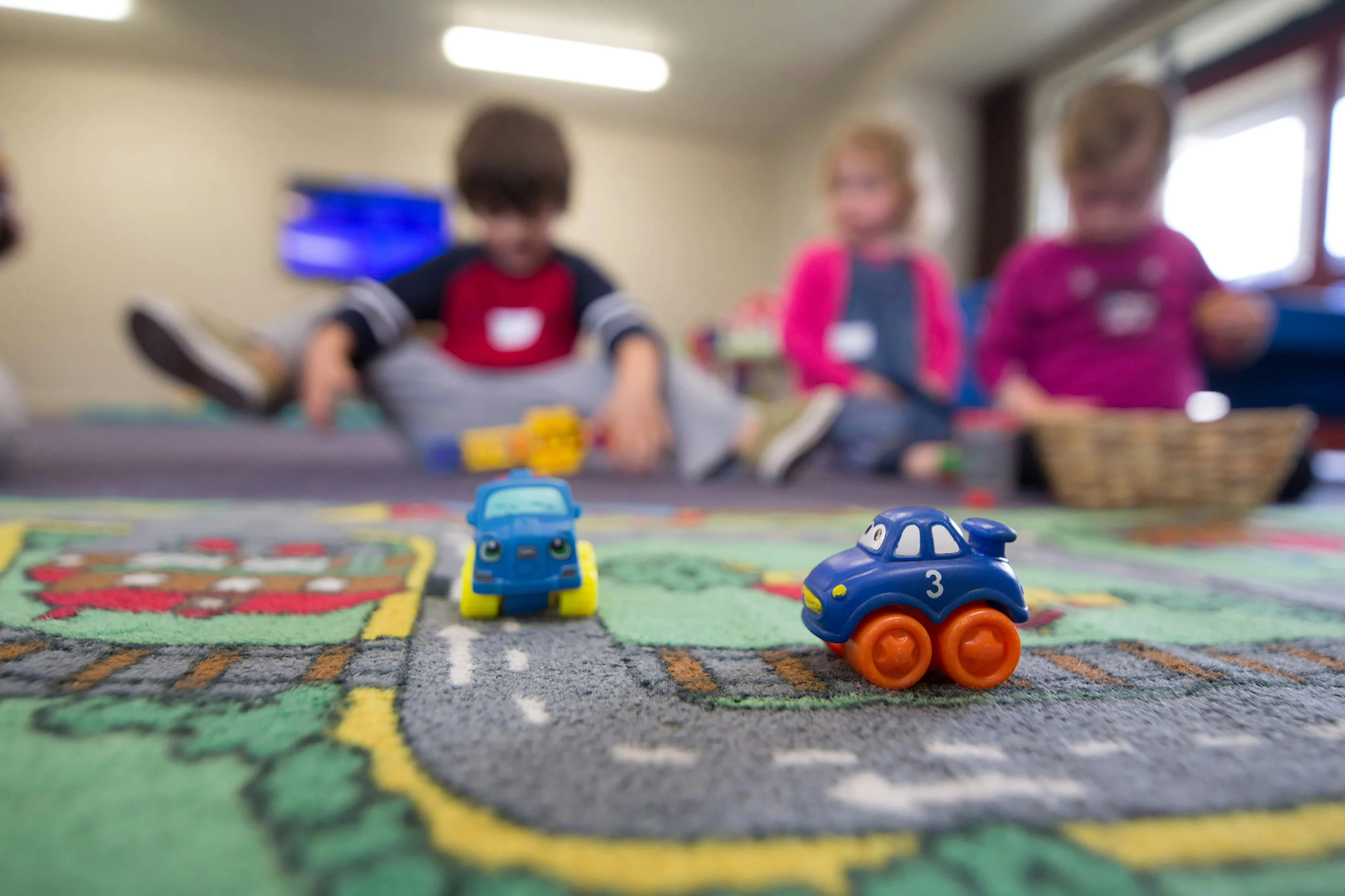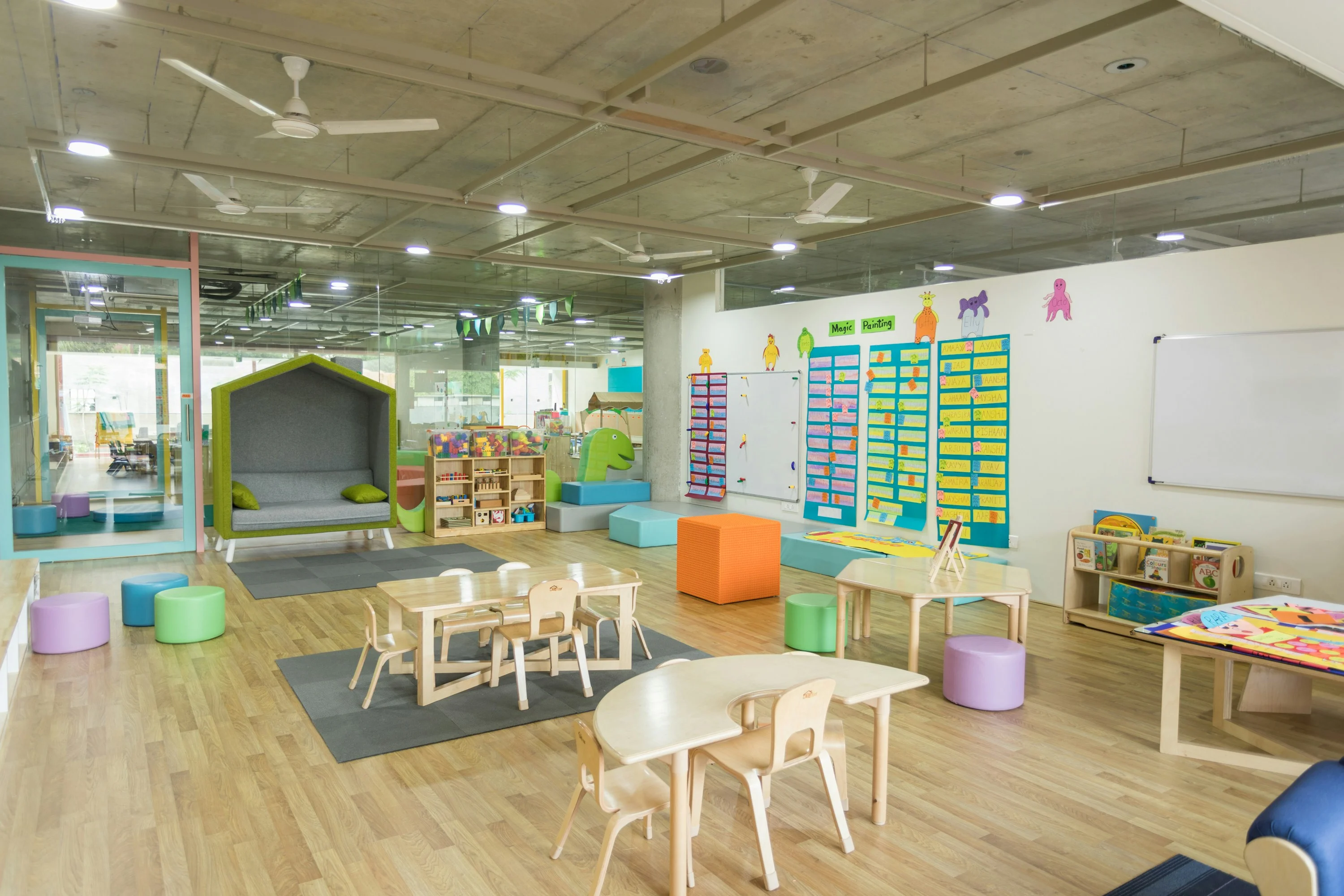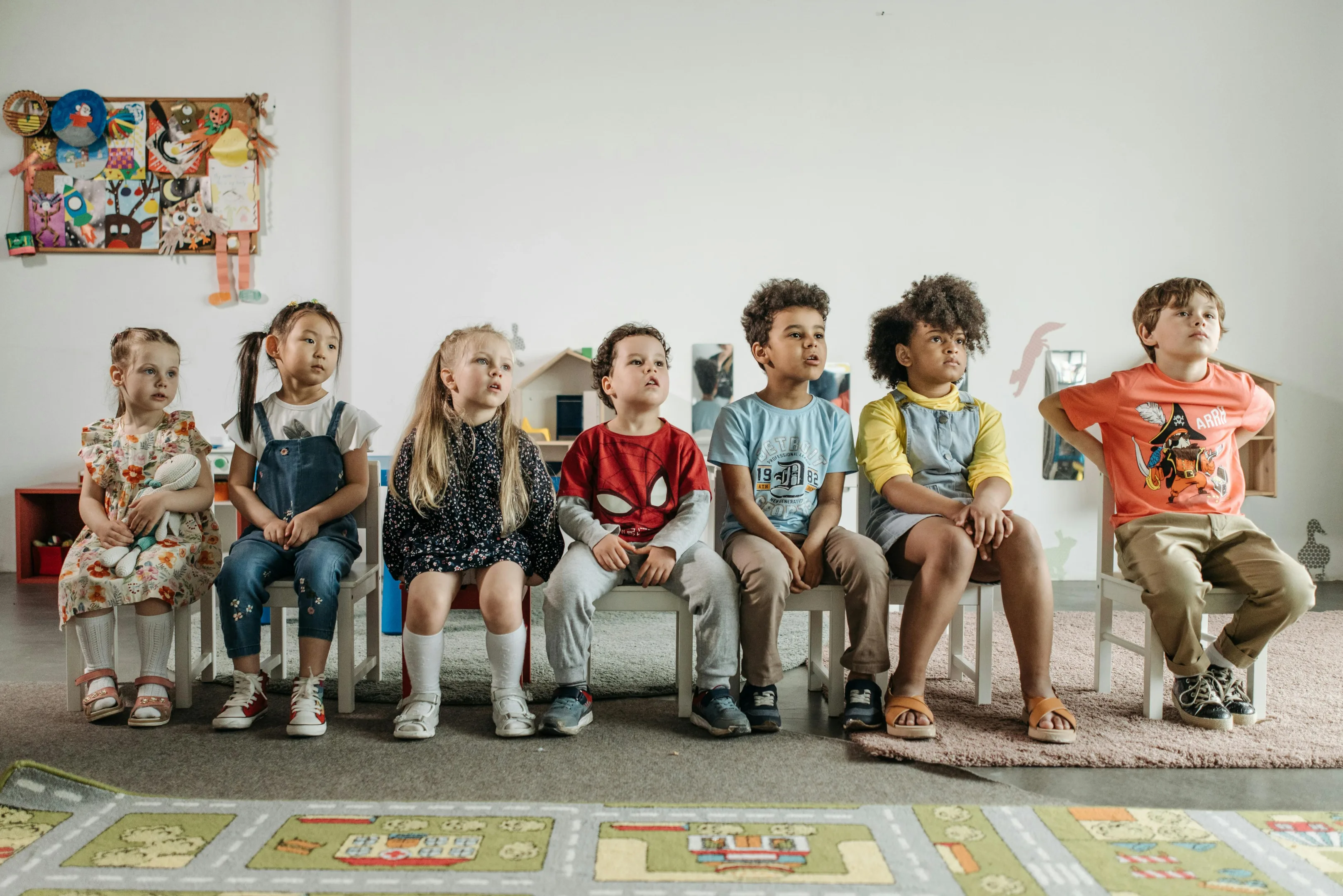
It’s here quicker than you ever imagined – your child’s first day of preschool. It’s a huge milestone in a child’s young life but it can also feel like a momentous occasion for parents. Children have to separate from their parents at some point. It’s a normal and healthy part of life but it can cause separation anxiety on both sides so it needs to be handled carefully, especially if your child has never left you before.
What are the Advantages of Attending a Preschool?
It’s been proven that there are many advantages to going to preschool. Most kids who have attended preschool tend to settle quickly and have more confidence when they start school. Being in an environment with lots of other children will mean your child has opportunities to:
learn new skills
grow in confidence
find out about the world
begin problem-solving
explore and use technology
develop their independence
develop their creativity and imagination
learn to communicate with adults and children
make new friends
have lots of fun indoors and outdoors
opportunities to copy other kids means they often make quicker progress.
How Do I Decide Which Preschool to Send My Child To?

Allow yourself plenty of time before deciding on a preschool. This is an important decision. I’m sometimes surprised that some parents choose their preschool based on information on the internet and give it no more thought than they would be buying a new appliance. Think carefully about what you want from a preschool.
I’d recommend you visit a few different places before your child starts so that you have at least one comparison. It’s a really good idea to have a list of ready-prepared questions to ask when you visit, such as:
What experience/qualifications do the preschool teachers have?
Is there a safe recruitment policy for the staff?
What are the ratios of adults to children?
Will your child have a key person?
What is the vision for children in preschool?
How do they settle children if they become upset?
You may have lots of other questions you want to ask and that’s fine too. As you look around, you will get a feel for the staff and the environment. Do they seem approachable? Are the children engaged and busy? Are the staff interacting with the children or do they stand around chatting with other staff members? Does it feel right to you? Parents often say they have a gut instinct about a place. Remember, it’s your child, and you know best what kind of environment will suit them.
Sharing Information
When you feel comfortable with your chosen school, it’s time to start preparing your child for their first day of preschool. Start to casually mention that soon it will be time to start preschool. It’s a good idea to walk or drive past the building and point it out to your child a few times so that it becomes a familiar building. You can also look at books about starting preschool. My favorite books for this age group are:
Going to School (First Experiences) by Civardi Anne
Starting School by Allan Ahlberg and Janet Ahlberg
Preschool, Here I Come by D.J. Steinberg
Transition Visits
It’s a good idea to visit your chosen preschool with your child before school starts. Then you can talk about the place together and look forward to all the exciting things available there. If your child has an additional learning need, you will probably have to do a few transition visits before they start so that the staff are prepared for any medical needs, and your child feels comfortable and safe.
Prepare for Tears

Lots of children have a few tears when they first go through the doors and leave their parents behind. It’s perfectly natural and understandable. The best way to deal with this is to show your kid that you feel completely confident leaving them with your child’s teacher. Tell them that they are going to have a lovely time and calmly walk away.
The worst thing you can do is cling to your child, looking distressed and worried yourself as this will only exacerbate your child’s feelings. Think of the situation through their eyes. If mummy or daddy looks worried, there must be something to worry about and so their feelings of nervousness will only increase. Even if you do feel nervous for them, pretend you feel totally confident and reassure them that it will soon be home time and you will be back to collect them.
I was a nursery teacher for many years and remember many children shedding a few tears on their first morning. Some children would cry at every drop-off for the first few weeks, but once their parents had left, and the child was distracted with something of interest to them, they quickly settled down and started to have fun.
What’s Important to the Child?
To ease the nervousness, talk to your preschool first about what is important to your child.
Have they got a favorite toy, a soother, or a comfort blanket that can be used if they get upset?
Are there any foods they prefer or that they don’t eat?
Do they use a bottle a beaker or an open cup?
How do they let you know when they need changing or want to go to the toilet?
Who are the important people in your child’s life?
All these things are important to share so that your child feels as settled as possible.
Many settings now use digital apps like Seesaw, where photographs are shared during the session to reassure anxious parents. Other settings take photographs and videos to show when you collect your child.
In my nursery, to prepare for their first day, we used to find out about the children’s favorite TV programs and have posters and books about them around the room for the first few weeks. This meant there were familiar references for the children to look at and talk about. It’s a little thing but it did make a big difference.
What to Pack in Their Bag?
Be sure to make time to organize a bag for your child with all the things they will need in preschool. This will include a change of clothes in case of an accident, a coat so they are warm enough if they play outdoors, and a comforter (a dummy or special toy or blanket) if they become upset. For lots more sensible ideas, check out this preschool packing list.
First Day of Preschool Expectations

It’s important to have realistic expectations when your child starts preschool. They will no doubt have a few tears initially but remember this is perfectly normal on a first day. Other children may enter happily on their first day, but their tears may come later when they realize that preschool was not a one-off and they will be going there every day.
Expect your child to be more tired than usual. They are processing a lot of new information, making new friends, learning new concepts, and coping with being one of many children. This is particularly pertinent to children who are an only child.
Equally, children who start preschool soon after a new baby has arrived can become anxious and upset. It’s perfectly understandable. They have had their parents’ undivided attention and suddenly there is a new baby at home at the same time as they are having to compete with lots of other children in preschool for adult attention.
If you find yourself in this situation, make sure that you give your child some special time of their own. Every day, try to set aside some time when you can be with them alone, ideally with no other distractions so they understand they are still important to you.
Children Who Don’t Settle
Every child is an individual, and they will settle in their own time when they are ready. As a rule of thumb, I usually allow approximately six weeks for children to settle. Some children will bounce in through the doors with no problems at all, others will have a few tears initially but will settle down once they get into the routine.
Some children are fine for a few weeks, and then have a little wobble, before they fully settle. This can be frustrating for parents when their child seems to have settled so well initially. It’s usually because they are tired from a busy new routine or they may be unwell, which sometimes happens when children start to mix with their peers.
Occasionally, a child will not settle at all. If after six weeks, you have a child who is still distressed and anxious throughout the session, even though they are attending regularly, and other children in the setting are coping well, it may be time to seek further help. If your child can talk, choose a time when they are nice and relaxed and ask them what they like and don’t like about preschool. Talk to your child’s setting and work together to put some further strategies in place.
Consider if the session is too long for your child to cope with. You may need to think about adapting to a shorter session. Do they need a slightly reduced timetable? Maybe they are tired and need time to sleep within the session. Try to work together to identify the triggers for the anxiety. Do they become upset in certain areas or are they generally anxious?
Some children will have delayed emotional and social development and will need more time and patience. If you remain concerned, talk to your child’s health visitor or GP.
Check out this article for further advice on the first day of preschool.
Remember time and patience are key, and having fun should always be the main aim for pre-school age children.
